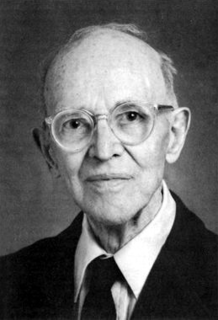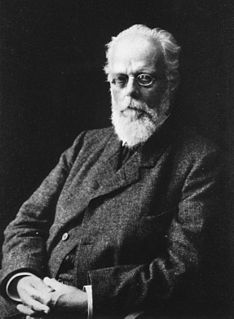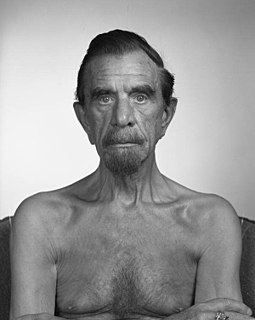A Quote by Isaac Newton
The main Business of Natural Philosophy is to argue from Phænomena without feigning Hypotheses, and to deduce Causes from Effects till we come to the very first Cause, which certainly is not mechanical; and not only to unfold the Mechanism of the World, but chiefly to resolve these, and to such like Questions.
Related Quotes
What can be more foolish than to think that all this rare fabric of heaven and earth could come by chance, when all the skill of art is not able to make an oyster? To see rare effects, and no cause ; a motion, without a mover ; a circle, without a centre ; a time, without an eternity ; a second, without a first : these are things so against philosophy and natural reason, that he must be a beast in understanding who can believe in them. The thing formed, says that nothing formed it ; and that which is made is, while that which made it is not, This folly is infinite.
One should not wrongly reify 'cause' and 'effect,' as the natural scientists do (and whoever, like them, now 'naturalizes' in his thinking), according to the prevailing mechanical doltishness which makes the cause press and push until it 'effects' its end; one should use 'cause' and 'effect' only as pure concepts, that is to say, as conventional fictions for the purpose of designation and communication-not for explanation.
I have not been able to discover the cause of those properties of gravity from phenomena, and I frame no hypotheses; for whatever is not deduced from the phenomena is to be called a hypothesis, and hypotheses, whether metaphysical or physical, whether of occult qualities or mechanical, have no place in experimental philosophy.
God thus excludes the world; he is only its cause; in no sense is he effect, of himself or anything else. Pantheism (better, "pandeism," for again it is not really the theos that is described) means that God is the integral totality of ordinary cause-effects, and that there, is no super-cause independent of ordinary causes and effects.
Man is made for science; he reasons from effects to causes, and from causes to effects; but he does not always reason without error. In reasoning, therefore, from appearances which are particular, care must be taken how we generalize; we should be cautious not to attribute to nature, laws which may perhaps be only of our own invention.
In an economy, an act, a habit, an institution, or a law, gives birth not only to an effect, but to a series of effects. Of these effects, the first only is immediate; it manifests itself simultaneously with its cause - it is seen. The others unfold in succession - they are not seen. Now this difference is enormous, for it is often true that when the immediate consequence is favorable, the ultimate consequences are fatal, and the converse.
The world is not as it was when it came from its Maker's hands. It has been modified by many great revolutions, brought about by an inner mechanism of which we very imperfectly comprehend the movements; but of which we gain a glimpse by studying their effects: and their many causes still acting on the surface of our globe with undiminished power, which are changing, and will continue to change it, as long as it shall last.
The growth of our knowledge is the result of a process closely resembling what Darwin called 'natural selection'; that is, the natural selection of hypotheses: our knowledge consists, at every moment, of those hypotheses which have shown their (comparative) fitness by surviving so far in their struggle for existence, a competitive struggle which eliminates those hypotheses which are unfit.
In experimental philosophy, we are to look upon propositions inferred by general induction from phenomena as accurately or very nearly true, notwithstanding any contrary hypotheses that may be imagined, till such time as other phenomena occur by which they may either be made more accurate or liable to exceptions.
Our design, not respecting arts, but philosophy, and our subject, not manual, but natural powers, we consider chiefly those things which relate to gravity, levity, elastic force, the resistance of fluids, and the like forces, whether attractive or impulsive; and therefore we offer this work as mathematical principles of philosophy; for all the difficulty of philosophy seems to consist in this from the phenomena of motions to investigate the forces of nature, and then from these forces to demonstrate the other phenomena.
For truly in nature there are many operations that are far more than mechanical. Nature is not simply an organic body like a clock, which has no vital principle of motion in it; but it is a living body which has life and perception, which are much more exalted than a mere mechanism or a mechanical motion.





































